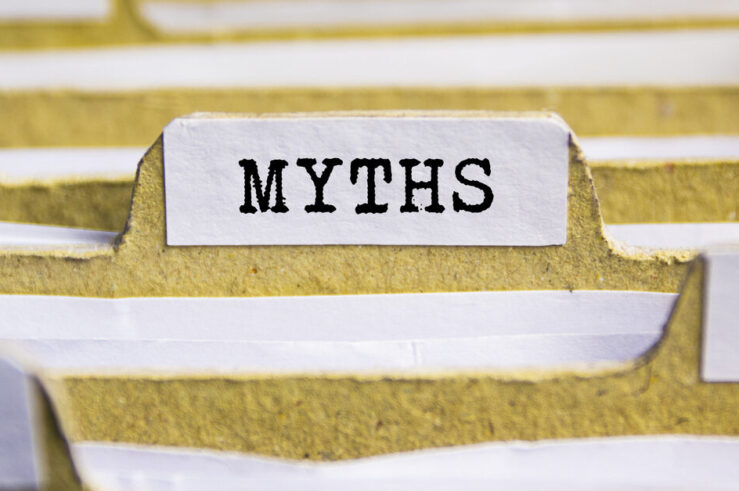Showing results for: “e-books”
Latin America Should Follow Its Own Path on Digital-Markets Competition
In order to promote competition in digital markets,[1] Latin American countries should not copy and paste “solutions” from other jurisdictions, but rather design their own set of policies. In short, Latin American countries—like my own, Peru—should not “put the cart before the horse” and regulate markets that are not yet mature. Digital or “tech” markets ... Latin America Should Follow Its Own Path on Digital-Markets Competition
Antitrust at the Agencies Roundup: Take My Default … Please! Edition
I can hardly believe it, but I’ve read that a famous old bit by Henny Youngman has been purged from Florida textbooks, apparently because it was deemed offensive to those who wrote, told, and laughed at the joke. I won’t tell it here, but you can look it up. And if you’re a reader of ... Antitrust at the Agencies Roundup: Take My Default … Please! Edition
NetChoice, Net Neutrality, and the Future of the First Amendment Online
In an expected decision (but with a somewhat unexpected coalition), the U.S. Supreme Court has moved 5 to 4 to vacate an order issued early last month by the 5th U.S. Circuit Court of Appeals, which stayed an earlier December 2021 order from the U.S. District Court for the Western District of Texas enjoining Texas’ ... NetChoice, Net Neutrality, and the Future of the First Amendment Online
10 Things the American Innovation and Choice Online Act Gets Wrong
The Senate Judiciary Committee is set to debate S. 2992, the American Innovation and Choice Online Act (or AICOA) during a markup session Thursday. If passed into law, the bill would force online platforms to treat rivals’ services as they would their own, while ensuring their platforms interoperate seamlessly. The bill marks the culmination of ... 10 Things the American Innovation and Choice Online Act Gets Wrong
Italy’s Google and Apple Decisions: Regulatory Paternalism and Overenforcement
The Autorità Garante della Concorenza e del Mercato (AGCM), Italy’s competition and consumer-protection watchdog, on Nov. 25 handed down fines against Google and Apple of €10 million each—the maximum penalty contemplated by the law—for alleged unfair commercial practices. Ultimately, the two decisions stand as textbook examples of why regulators should, wherever possible, strongly defer to ... Italy’s Google and Apple Decisions: Regulatory Paternalism and Overenforcement
How Changing Section 230 Could Disrupt Insurance Markets
In recent years, a diverse cross-section of advocates and politicians have leveled criticisms at Section 230 of the Communications Decency Act and its grant of legal immunity to interactive computer services. Proposed legislative changes to the law have been put forward by both Republicans and Democrats. It remains unclear whether Congress (or the courts) will ... How Changing Section 230 Could Disrupt Insurance Markets
The Klobuchar Bill’s Not-So-Bright Lines for Antitrust Scrutiny
In a recent op-ed, Robert Bork Jr. laments the Biden administration’s drive to jettison the Consumer Welfare Standard that has formed nearly half a century of antitrust jurisprudence. The move can be seen in the near-revolution at the Federal Trade Commission, in the president’s executive order on competition enforcement, and in several of the major ... The Klobuchar Bill’s Not-So-Bright Lines for Antitrust Scrutiny
The Virtues and Pitfalls of Economic Models
Interrogations concerning the role that economic theory should play in policy decisions are nothing new. Milton Friedman famously drew a distinction between “positive” and “normative” economics, notably arguing that theoretical models were valuable, despite their unrealistic assumptions. Kenneth Arrow and Gerard Debreu’s highly theoretical work on General Equilibrium Theory is widely acknowledged as one of ... The Virtues and Pitfalls of Economic Models
European Commission Objection to App Store Rules Lack Empirical Support
The European Commission recently issued a formal Statement of Objections (SO) in which it charges Apple with antitrust breach. In a nutshell, the commission argues that Apple prevents app developers—in this case, Spotify—from using alternative in-app purchase systems (IAPs) other than Apple’s own, or steering them towards other, cheaper payment methods on another site. This, ... European Commission Objection to App Store Rules Lack Empirical Support
It’s Not So Simple Who Owns “Your” Data
What kind of regulation? Treating digital platforms like public utilities won’t work, Petit argues, because the product is multidimensional and competition takes place on multiple margins (the larger theme of the book): “there is a plausible chance that increased competition in digital markets will lead to a race to the bottom, in which price competition ... It’s Not So Simple Who Owns “Your” Data
What is a search engine?
What is a search engine? This might seem like an innocuous question, but it lies at the heart of the US Department of Justice and state Attorneys’ General antitrust complaint against Google, as well as the European Commission’s Google Search and Android decisions. It is also central to a report published by the UK’s Competition ... What is a search engine?
Conservatism and the Section 230 Debate: Applying First Principles
Over at the Federalist Society’s blog, there has been an ongoing debate about what to do about Section 230. While there has long-been variety in what we call conservatism in the United States, the most prominent strains have agreed on at least the following: Constitutionally limited government, free markets, and prudence in policy-making. You would ... Conservatism and the Section 230 Debate: Applying First Principles













